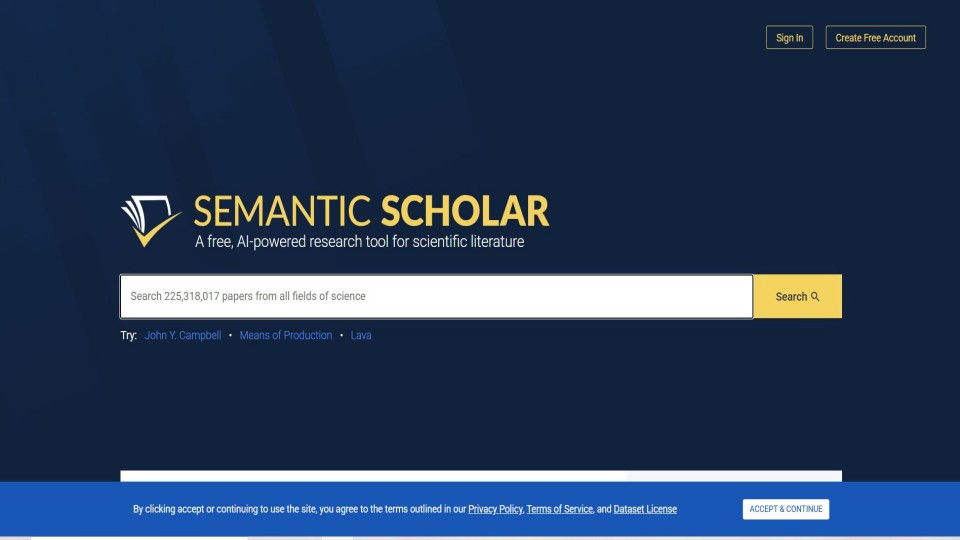What is Semantic Scholar? Semantic Scholar is a free, AI-powered research tool developed by the Allen Institute for AI. It aims to improve the accessibility and efficiency of scientific research through advanced AI technology.
How can I use Semantic Scholar for research? Semantic Scholar provides access to a massive database of over 218 million research papers across all fields of science. With its AI-powered search, you can quickly find relevant papers and explore a vast collection of scientific literature, making it an invaluable resource for researchers.
What features does Semantic Scholar offer? Semantic Scholar offers a variety of features to enhance the research process:
Free API for Developers: Developers can integrate Semantic Scholar's resources into their own tools and applications.
Semantic Reader: An augmented reader that provides enriched context for scientific papers, designed to make reading research more accessible and informative.
Comprehensive Database: Access to millions of scientific papers, along with resources like tutorials, FAQs, and a blog to support your research journey.
What is Semantic Reader? Semantic Reader is an augmented reading tool designed to enhance how researchers interact with scientific papers. By providing richer context and making the research more accessible, Semantic Reader is currently in beta and available for select papers.
Can I contribute to Semantic Scholar? Yes, you can contribute to Semantic Scholar by joining its beta program, using the API, or engaging with the community through its blog and social media channels.
What is the aim of Semantic Scholar? Semantic Scholar aims to provide a more efficient, accessible, and inclusive research tool for the scientific community. By leveraging AI, it strives to reduce the carbon footprint of research and increase accessibility for researchers worldwide.
